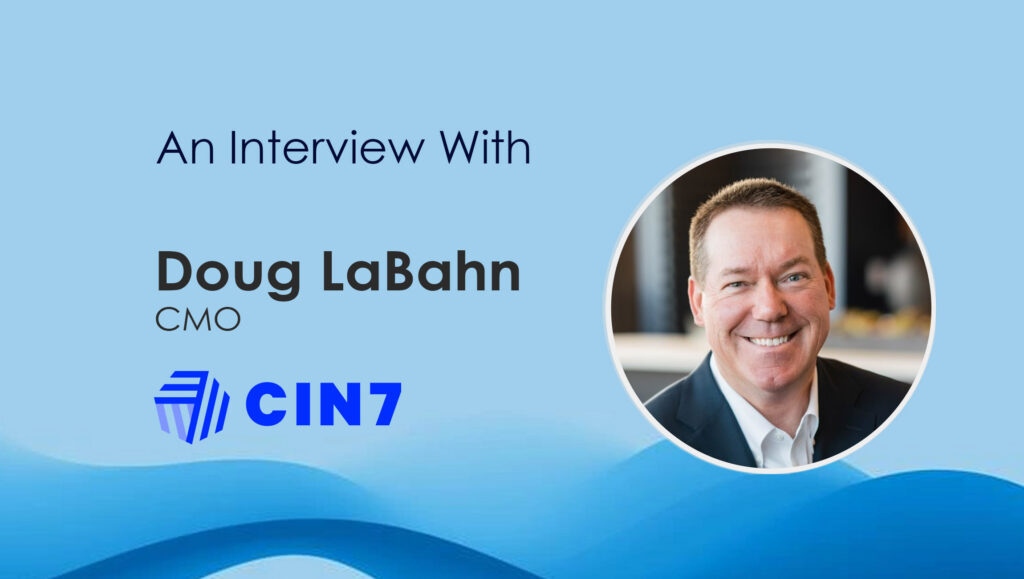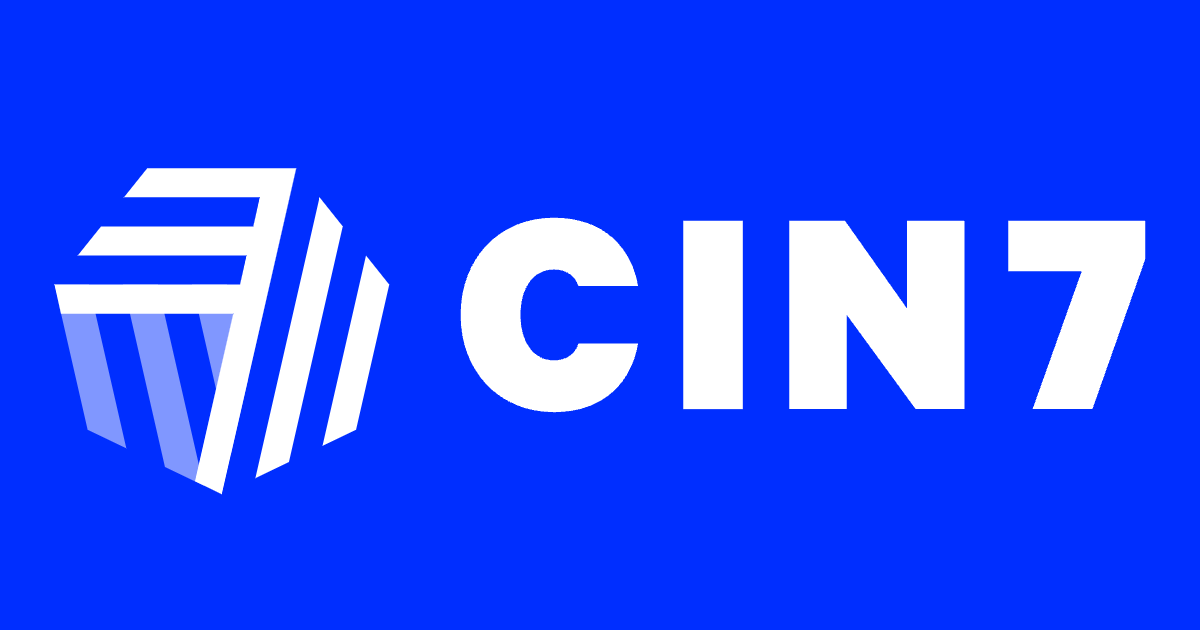What kind of processes and automation can help drive quicker small business success? Doug LaBahn, CMO at Cin7 has some tips:
________
Welcome to this SalesTechStar chat Doug, we’d love to start off by knowing more about your journey through the years…what led you to sales-marketing roles. Tell us more about being CMO at Cin7?
I’ve always loved collaborating in fast-paced, integrated environments and enjoy leading and building world-class marketing, product, innovation and channel teams. As CMO of Cin7, I’m largely focused on the customer, insights, storytelling, digital and field marketing and service design – which all play important contributing roles in scaling our product portfolios within small business, consumer and mid-market segments. Because Cin7 is an integrated, cloud-native platform, I’m lucky to be able to have a hand in assisting a wide variety of small business owners and product sellers grow and find success with the help of easy-to-use technology, such as accounting, third-party logistics, point-of-sale, inventory and order management, and more – much of which comes from Cin7 and its partner companies.
If I distilled this into one theme – the most successful and thriving small businesses all have expert advisors, great cloud tech stacks, and a smart understanding of their customers, competitors, and how to win. We’re empowering small businesses by giving them very easy and affordable access to experts and software. That’s really inspiring and fun work!
In my career, I’ve had the privilege of being part of talented SaaS teams that have led businesses through growth curves from ~$100M to ~$800M ARR several times. We have everything we need to do this here at Cin7 – fantastic colleagues, great software, an abundance of experts, and thriving customers.
We’d love to hear about some of Cin7’s latest innovations and how it’s benefiting small businesses/end users?
Most recently, we announced a new strategic product bundle with Intuit, the global technology platform that makes QuickBooks, TurboTax, Mint, Credit Karma and Mailchimp. This broadened collaboration and innovative product suite bundle of the two systems makes it very simple and affordable for small business owners and product sellers to move from legacy desktop software to the cloud – enabling them to take advantage of connecting their cloud accounting software with a robust cloud inventory management solution – ultimately helping to avoid legacy ERP systems and grow channels at scale.
We also just recently announced new inventory management automation tech stacks for Cin7 Orderhive, which help millions of businesses easily learn and adopt automation best practices from companies that are succeeding and thriving. Small businesses – which make up much of our customer base – are increasingly dependent on automated technologies to remain competitive and gain access to the global marketplace.
The recent ecommerce boom has created new opportunities for product sellers, as online sales during this past holiday season increased 104% on average for small businesses compared to last year.
However, rapid growth often leads to new complexities, and software like Cin7 has emerged as a significant opportunity for small businesses to grow at scale.
How are you seeing automation trends for small business teams change today? What type of automation are they most looking for given today’s challenges?
Automation has become much more accessible than ever before. With the proliferation of the cloud and the rapid growth of ecommerce, it’s no longer an option to have automated technologies, but instead a necessity to compete in today’s ever-demanding retail environment. Product sellers, both large and small, have been pushed to modernize business operations and prioritize areas that allow them to succeed long-term, such as expanding sales channels and investing in innovative and integrated technology tools.
While this shift to digital was on its way, the pandemic drastically accelerated the move to ecommerce and forced nearly all small businesses to consider online selling, as well as multichannel sales to diversify and increase streams of revenue as big box retailers became even more dominant amid supply chain challenges, product and labor shortages, and shipment delays.
To successfully sell product, speed, cloud software, and experts are critical. Particularly in today’s ever-changing market, the rate at which a business is able to adjust operations in response to disruption is a determining factor of how successful it will be. No one person can know or do everything right. Experts give small businesses wisdom and cloud software gives them agility and unrivaled efficiency. By making intentional investments in innovative technologies that will automate processes, regularly keep data in sync across entire organizations in real-time, and integrate backend systems with websites and third-parties, business owners will be set up for success and will be better equipped to shift operations when necessary to ultimately get product into the hands of customers faster.
Read More: Checkpoint Set To Present Its Latest Technologies At NRF Protect 2022
For small businesses to scale faster, along with the right tools, what should they be doing in a dynamic marketplace: a few thoughts?
Small businesses looking to scale must invest in a multichannel approach or in the expansion of already existing channels. When businesses take more than a singular approach to sales, they gain access to increased brand awareness, new customers, and can reach consumers in ways they may have never considered previously – whether that be expanding sales to direct-to-consumer, business-to-business, wholesale or through third-party sellers.
Additionally, small businesses must look to integrated, cloud-native tools that not only provide essential visibility throughout an entire organization and its partners, but also to automate manual, time-consuming tasks that could be slowing the time it takes for product to get to consumers and end-users. Businesses can no longer get-by by manually inputting data into a spreadsheet. With so many new and always-moving factors at play when it comes to operating a business, innovative technologies that seamlessly integrate a multitude of tools and keep all systems aligned in real-time will be even more essential to business success than ever before.
Read More: SalesTechStar Interview with Auguste Goldman, President, Care and Services at GoDaddy
A few thoughts on the top trends you feel will shape online / offline marketplaces through this year…
Macroeconomic challenges, supply shortages, shipping delays and other logistics challenges are only going to continue to grow this year. As such, more business owners will move to cloud-native, integrated and turnkey technologies that enable them to manage entire businesses on one platform.
In addition, product sellers will increasingly outsource operations along the supply chain as the warehouse squeeze along with labor shortages plague the industry. As a result, outsourcing to third-party logistics providers will become doubly important because it will allow sellers to expand and scale much more quickly and efficiently than if they were to hire and obtain the multitude of required resources themselves. These third-party partnerships will also encourage the modernization of technology tools as many third-party logistics providers require partners to have new technologies embedded within already so that systems can easily integrate and play nice with one another.
Finally, we will continue to see product sellers prioritize the addition or improvement of two or more sales channels. Consumers are increasingly turning online to find the best deals and most convenient options, and businesses that don’t have a diversified portfolio of sales channels will fall drastically behind those that do – especially when competing against big box retailers who dominate the market like Amazon, Target and Walmart.
Read More: Feeds Drive Meaningful Engagement and Boost Customer Lifetime Value
Some last thoughts, takeaways, before we wrap up!
Technology is more accessible to small businesses and independent product sellers than ever before. Experts are too often overlooked and a fantastic accelerant. Business owners must invest in and utilize the tools available to them and experts to not only survive in today’s extremely demanding and competitive market, but to scale and thrive for years to come.
Cin7 is a leading provider of cloud-based inventory management software. It empowers small business and mid-market product sellers to succeed in the modern, global, multichannel economy by automating the sale, purchase, and delivery of products to consumers and B2B customers. Serving over 8,000 customers worldwide with Cin7, DEAR Systems, and Cin7 Orderhive, it delivers impressive value to product sellers’ mission-critical operations and empower product sellers to grow by adding and improving sales channels while simultaneously increasing operational efficiency and removing costly operational mistakes.
Doug LaBahn is CMO at Cin7
Missed The Latest Episode of The SalesStar Podcast? Have a quick listen here!
Episode 125: Sell without Selling Out – A Conversation with Andy Paul
Episode 124: Improving the Online Buying Journey with David Greenberg, CMO at Conversica
Episode 123: B2B Revenue Tricks And Best Practices with Jamie Bertasi – President and Chief Operating Officer at Totango























